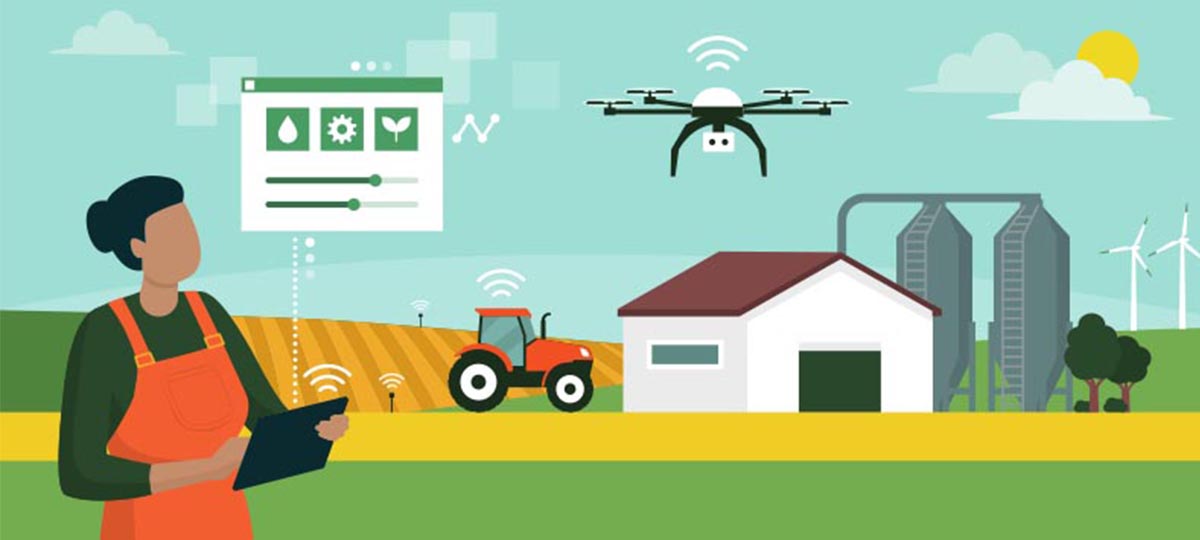Youths and agricultural transformation
New generations with a vision of the future are more serious about environmental issues, care about mother earth and familier with technologies and market policies.
 Representational Image
Representational Image
All the revolutions and major changes in the world were first envisioned and led by youths. That is why youth is known as the power and driver of all change. Energy, courage, the vision of the future, drive towards change, dedication, etc characterize youths, making them the source of social transformation. But the determination, dynamism, knowledge, skills and immense courage of youths have been undermined and crushed by feudal age-based hierarchy and the exploitative nature of capitalism. When there is a serious crisis in the global system including political and agrarian crises, time demands the youth's leadership to bring transformation in many social arenas. It's not only science and technology but in every sector, even to transform agriculture, youth engagement and leadership are vital. Transformation in the political, economic, and socio-cultural system is only possible through active youth participation. To make it more clear here are a few points that reflect on why youth in agriculture is urgent and why transformation in agriculture is not possible without them.
First, youths are the drivers of all changes, thus agricultural development. There are dozens of qualities youths have that drive changes. The enthusiasm, courage, energy, vision and long term thinking, familiarity with new scientific knowledge and technologies, and radicalness are few to mention. Since youths are the major sources of change, without youths, changes in agriculture are also difficult.
The second reason for the urgency of attracting youths to agriculture is for the future of agriculture. The average age of the farmers all over the world has been found to be increasing, especially in recent years. This is happening because farming and agriculture have not been the first choice of most youths. The percentage of people engaging in farming is decreasing rapidly. Data shows that the average age of farmers of South Korea and Japan already exceeds 60 years which is not different from European and North American Capitalist countries wherein on average less than three percent of people do farming. Even in many developing countries like Nepal, rural villages are left with children and senior citizens, seriously lacking an active population in agriculture. As we know, without food not only the people but also life on earth is not possible, we have to continue to produce food. When the future of agriculture is threatened, it is thus the involvement of youth in agriculture that has become urgent to sustain agriculture, continue diverse food production and sustain the lives on Earth.
The thirdly, youth engagement in agriculture is sustainability in agriculture and the transformation of rural lives. Sustainability in agriculture means the care for nature, proper use of resources, eco-friendly practices and a peasants’ centered approach. 70% of the world's food is produced by small farmers using local resources to feed their families, not by big farmers, industrial farms, companies and corporations. Therefore, it is the peasantry which is feeding the world and who can feed the world. Capitalist and industrial production is not only destroying natural and natural resources but also using excessive chemicals and impacting people's health. Therefore, sustainability should be the core principle of agrarian transformation. New generations with a vision of the future are more serious about environmental issues and care about mother earth. Another challenge of agriculture in rural parts of Asia, Africa and South America is that it has not been transformed. Agriculture is traditional and subsistence-oriented. That is one of the reasons for the rural exodus and the distraction of youth from agriculture. On one side the farmers are impacted by corporate agriculture and on another side the market monopoly. It is important to transform agriculture in a very innovative, sustainable and localized way. Food sovereignty principles and the practice of agroecology have been the peasants' way of transforming agriculture in a sustainable way. This transformation is only possible by youths. Youth take care of the future. That is why they are often addressed as the future of nations and the world. The problem of unsustainability and climate crisis is due to unsustainable practices in agriculture. For sustainable agriculture, stewardship of nature, youth mindset with sustainable use of resources, care of nature and long term vision is important. Thus, youth engagement is important for the sustainable development of agriculture.
The fifth, young generation in farming is to change the image of agriculture and peasants. Agriculture, especially in developing countries is traditional, subsistence-based, surrounded by many challenges. There is also a considerable decrease in budget allocation and investment of the state, further marginalizing agriculture. That is why very little has been achieved through the agricultural sector in our country, failing to adopt farming as a decent source of income and employment.
Besides, it is necessary to be able to plan and execute a project not only to get the subsidy, grants and loans but also to make farming a source of income and employment. Contacting a technical person to the knowledge of diseases and pathogens is absolutely a work of educated manpower. Young and smart farmers are needed to reduce the impacts on the peasantry by foreign market and price fluctuation.
Without transforming agriculture, rural livelihood can't be transformed. There is a huge gap between rural and urban life. This has also created a rift between the rural and urban mindsets. Youths can fill these gaps. Youths in our country usually get their education in urban cities. These youths with the urban mindset and greater knowledge of challenges faced by urban people on getting healthy, culturally appropriate food at a fair price can contribute a lot. Likewise, rural life will be reformed when educated youths lead the social and political activities in rural areas. Establishing rural-urban linkage, developing market networks, providing healthy food at an affordable price, and involvement of new generations in agriculture are important.
Therefore, public policies that support youth’s engagement in agriculture is one of our foremost needs. Retaining migrant returnees acquitted with new practices, entrepreneurship skills and investment capacities in agriculture can be a major source of transformation in agriculture, especially in Nepal. For this, all the efforts on increasing investment, orientation, training and education, ensuring access and control of producers on land, market, credit, seeds and other resources, professionalization, mechanization and sustainability in agriculture have to be linked to youths. Subsidies, insurance, grants, and the creation of a conducive environment are equally important to attract a new generation in agriculture for the future of humanity and mother earth. This is a high time to mull over the future of agriculture.
Our future is in agriculture and it can only be transformed and used as a driving force of the Nepalese economy only if we can mobilize and encourage youth participation.









Leave Comment